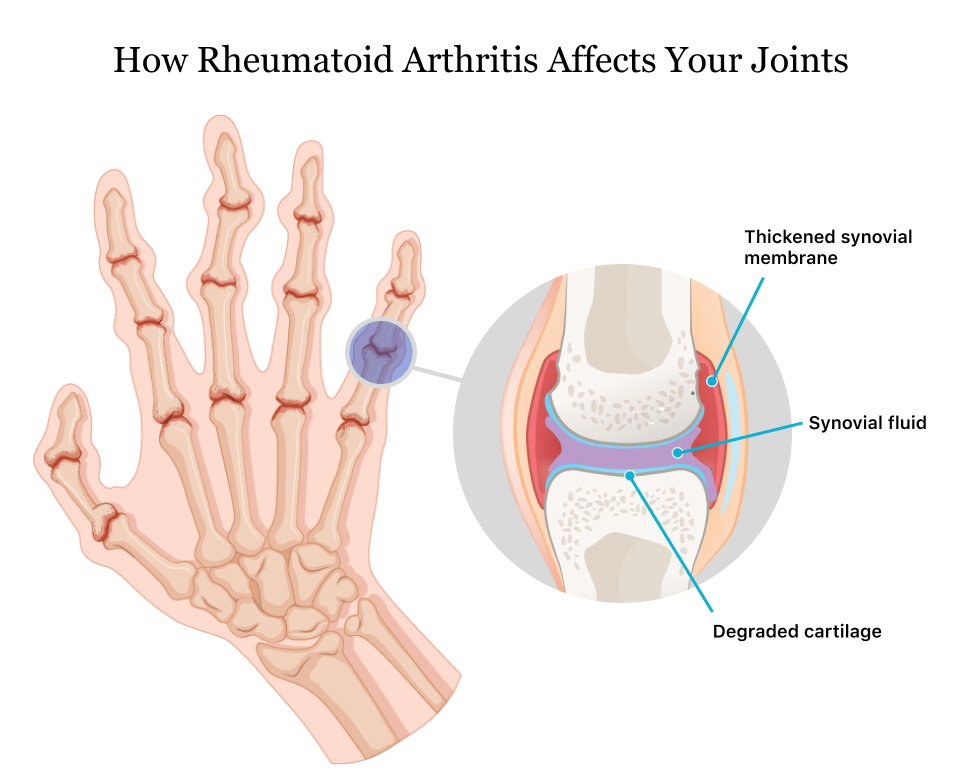Arthritis causes joints to make sounds due to the loss of smooth cartilage and the newly formed roughness of joint surfaces

Arthritis and Joint Sounds: Exploring the Connection

When you have arthritis, you may experience an unsettling sensation as your joints produce unusual sounds. These sounds can range from cracking to popping, giving rise to curiosity about what causes them. Arthritis, a condition characterized by joint inflammation, can lead to this perplexing auditory phenomenon. In this article, we will delve into the relationship between arthritis and joint sounds, exploring the underlying factors that contribute to this intriguing occurrence.
Arthritis, whether it’s osteoarthritis (OA) or rheumatoid arthritis (RA), affects millions of people worldwide. OA typically develops due to aging, joint injury, obesity, or repetitive stress on the joints, whereas RA is an autoimmune disorder where the immune system mistakenly attacks the body’s own tissues, including the joints. Both types of arthritis can cause the smooth cartilage that covers the joint surfaces to deteriorate, leading to joint roughness. As the cartilage wears away, the joint surfaces become uneven, resulting in the generation of sounds during movement.

The loss of smooth cartilage in arthritic joints creates an environment where bone rubs against bone during motion. When joint surfaces become rough, they can produce audible cracks and pops. These sounds are believed to arise from a series of events within the joint. As the joint moves, small pockets of gas, primarily comprised of nitrogen, carbon dioxide, and oxygen, can form in the synovial fluid surrounding the joint. When the joint is manipulated, these tiny gas bubbles might collapse or burst, resulting in the characteristic noises. Consequently, the sudden change in pressure can create a clicking or cracking sound.
Although these joint sounds might be disconcerting, they are typically harmless and not a cause for concern. The cracking or popping noise is not necessarily an indication of joint damage or worsening arthritis. However, if you experience persistent pain, swelling, or a decrease in joint function, it is advisable to consult a healthcare professional to ensure there are no underlying issues contributing to these symptoms.
In conclusion, the peculiar sounds that occur when joints crack or pop in individuals with arthritis can be attributed to the loss of smooth cartilage and the subsequent roughness of joint surfaces. Whether you have OA or RA, the deterioration of cartilage can result in bone rubbing against bone, generating these intriguing noises. Although joint sounds can be disconcerting, they are generally harmless and should not be a cause for undue concern. Remember, if you have any persistent or concerning symptoms related to your joints, it is always best to seek guidance from a medical expert.
Source: Library of Congress - What Causes the Noise When You Crack a Joint?
Tags
Share
Related Posts
Quick Links
Legal Stuff

